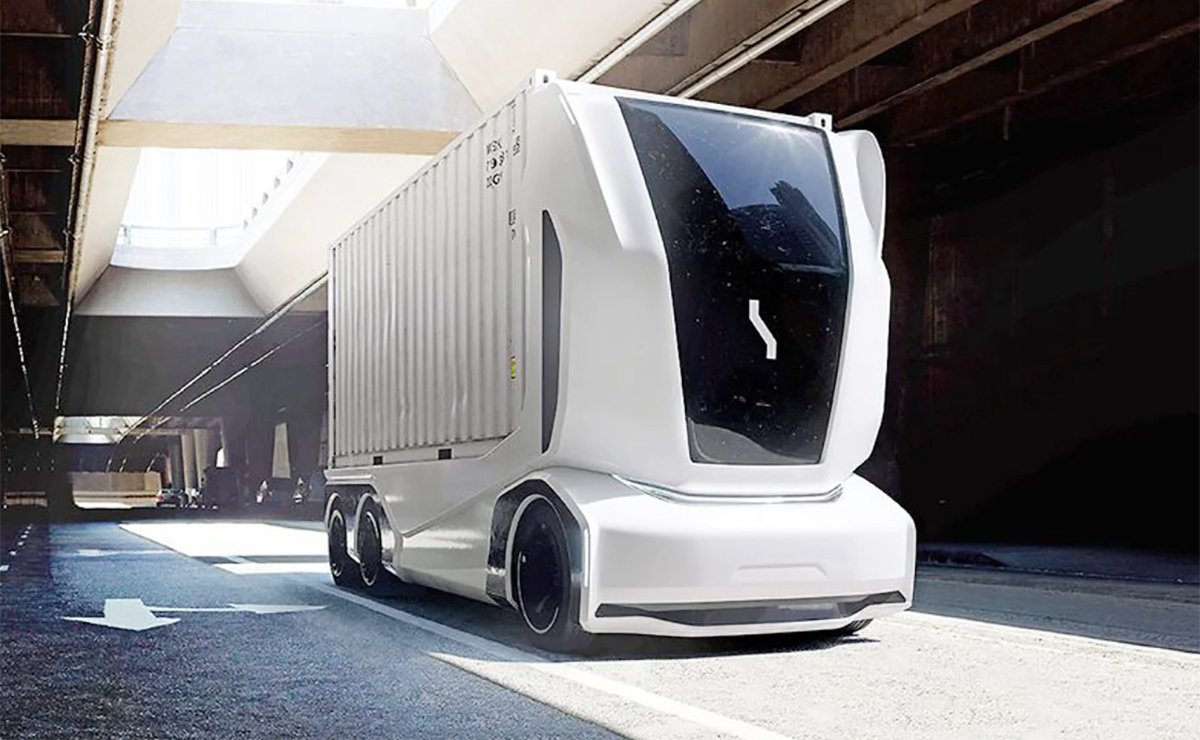<!–*/ */ /*–>*/
| Einride cleared to operate on public U.S. roads, will start in Tennessee this year |

Swedish autonomous-truck startup Einride has received regulatory approval to operate its trucks on public U.S. roadways and will begin doing so this year, the company said Thursday.
Einride will launch a pilot program in Tennessee with GE Appliances in the third quarter. The project will help the self-driving truck company showcase the ability of its Pod truck, which is built without a traditional front cab. The company said it received the go-ahead to drive on public roadways from NHTSA.
Einride CEO Robert Falck said gaining NHTSA approval is a significant moment for the company as it looks to expand its presence in the U.S. Einride opened its U.S. headquarters in New York in October and began setting up regional operations in California and Austin, Texas.
“For us, it’s all about scaling from here on out,” Falck told Automotive News.
Einride has been testing on public roadways in Europe since 2019. In the U.S., it had been relegated to private-road testing because current laws and regulations only allow traditional vehicle manufacturers to test vehicles that don’t conform to Federal Motor Vehicle Safety Standards on public roads.
Utilizing provisions within “Part 591” of the federal government’s regulations, Einride can import vehicles that may be tested on public roads. Now that it has that regulatory approval, Falck said there’s potential for the company to grow faster in the U.S.
“The U.S. is the most competitive marketplace in the world, and transport is the backbone of that economy,” he said. “The U.S. will be the first to have a built-out system of autonomous, electric transport solutions, and it’s due to the fact that every dollar counts in the U.S., and people are not afraid to try new technologies.”
— John Irwin
What you need to know
For long-haul trucking, Hydron sees long-term potential of hydrogen: Self-driving company officials unveil plans to design and manufacture purpose-built, hydrogen-powered Class 8 trucks.
GM launches feature to simplify public charging: The plug-and-charge service allows drivers to automatically charge their vehicles, rather than rely on a mobile app to set up and pay for charging.
CATL to introduce next-gen EV battery: CATL’s latest battery, called Qilin, will increase energy density to 255 Wh/kg, allowing EVs to drive longer distances on each charge.

<!–*/ */ /*–>*/
Roundup
How California ‘startup factory’ UP.Labs is sparking new ideas for Porsche in automotive.
Toyota joins Redwood Materials’ battery recycling initiative.
GM’s Cruise starts charging fares for driverless rides in San Francisco.
Detroit drone company nets $23 million from VC investors.
Congressional watchdog to study automotive ‘right to repair’ issues.
Electrify Expo attendance grows 40 percent as EVs gain popularity.
With BrightDrop, FedEx moves from testing EV delivery trucks to adopting them.
Brain food
U.S. safety regulators proposed requiring black boxes to collect 20 seconds of pre-crash data at a higher frequency rate to help better understand the actions that lead to a crash.
Last mile
Spin, the San Francisco-based electric bicycle- and scooter-sharing company, said it will invest up to $2 million in university research on micromobility at Michigan State University and the University of Utah.